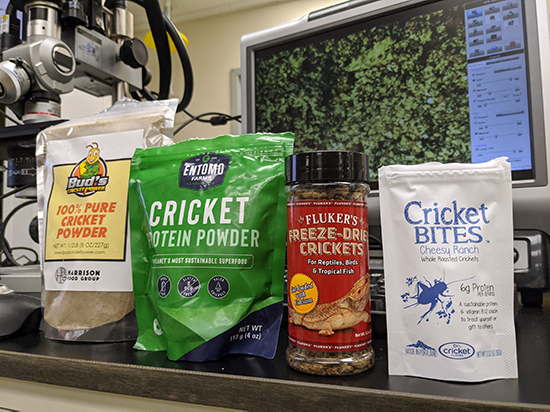Food tyranny: NYC to monitor household food consumption as biotech companies take over food production
05/23/2023 / By Laura Harris

The government and biotech companies are seeking to control people’s meat consumption and dietary choices.
To that end, New York City (NYC) is implementing new measures to track and reduce the carbon footprint associated with household food consumption. As part of a broader initiative to achieve a 33 percent reduction in carbon emissions from food by 2030, the city will monitor the greenhouse gas emissions resulting from food consumption and set limits on the amount of red meat served in public institutions.
NYC Mayor Eric Adams and officials from the Food Policy and Climate and Environmental Justice emphasized the significant role of food in contributing to emissions, particularly meat and dairy products.
“Food is the third-biggest source of cities’ emissions right after buildings and transportation,” Adams said. “But all food is not created equal. The vast majority of food that is contributing to our emission crises lies in meat and dairy products.”
“It is easy to talk about the emissions that’s coming from buildings and how it impacts our environment, but we now have to talk about beef. And I don’t know if people are ready for this conversation,” he added.
Adams has credited his recovery from diabetes to his plant-based diet and has been promoting such diets in NYC. He believes that eating more plant-based foods produced by biotech companies will yield health benefits and positive climate outcomes.
“We already know that a plant-powered diet is better for your physical and mental health, and I am living proof of that. But the reality is that thanks to this new inventory, we’re finding out it is better for the planet,” he said.
But Melissa McKendree, an agricultural economist at Michigan State University, argued that the situation is more complex. The greenhouse gas footprints of different meats differ due to variations in production systems. Additionally, different types of land support different forms of agriculture, such as cattle production in rangelands and pastures. When functioning properly, these diverse ecosystems contribute to a healthy overall ecosystem.
Regenerative agricultural systems offer an alternative approach. They enable pasture-raised beef to sequester carbon and act as a carbon sink, thereby reducing the greenhouse gas emissions associated with food production.
Will Harris, a regenerative livestock farmer, noted that land regeneration necessitates reestablishing the natural cycles disrupted by industrial farming.
“As a practitioner who has been regenerating depleted land for over 30 years, I can tell you that regenerating land is about restarting the cycles of nature that have been broken by industrial farming – and restarting those cycles cannot be done cost-effectively without animal impact,” Harris said.
“All ecosystems evolved with certain kinds of animal impact and to say we’ve misused technologies to break these cycles of nature and we are going to start them back by leaving out this essential ingredient that has been around for millennia is wrong. Sadly, there is a percentage of the populace that, for whatever reason, has decided that animals in the ecosystem are bad and the way to have a healthier planet is to give up that animal impact.”
Food tyrants to limit consumption of certain foods in public institutions
Food tyrants are not only after tracking food purchases but also limiting consumption of certain foods in public institutions such as schools and prisons.
For instance, NYC is planning to reduce meat consumption to achieve its goals by 2030. While specific targets and standards have not been disclosed, city officials mentioned implementing “caps on meat” as part of their efforts. (Related: The globalists are “coming for your food,” experts warn – “plant-based” tyranny will rule the world.)
NYC spends around $300 million annually on food for various institutions, allocating only about one percent of the budget to “ruminate meats,” according to the NYC Food Policy Dashboard. This move aligns with global efforts to address the environmental impact of meat production, with proposals ranging from outright meat bans to incentivizing reduced consumption or alternative meat production.
However, some experts argue that meat bans are an extreme policy response and suggest exploring other options. These alternatives could include supporting farmers in adopting regenerative practices through certified products, subsidies, taxes and educational programs. The White House has also emphasized climate-centric agriculture and biotechnology to reduce emissions from agriculture and explore lab-grown meats and bioengineered plant foods.
While meat alternatives such as lab-grown meat and insect protein are gaining popularity, it is essential to consider the potential environmental and health impacts associated with their production. Many meat substitutes require significant energy inputs and undergo extensive processing, which can have adverse effects. Processed food diets have been linked to various health issues like obesity, diabetes, cardiovascular disease, cancer and depression.
Critics argue that removing meat from meals may include less healthy and environmentally unfriendly processed foods, which could negatively impact both individuals and rural economies that rely on sustainable food production.
Watch this video to learn how lab-grown meat gets closer to American’s dinner tables.
More related stories:
Scientists push to implement edible RFID tracking chips in food.
Iowa on verge of legalizing raw milk; resistance to food tyranny is rising.
Real Food Tyranny is Threatening Us All: Let the Revolution Begin.
Senate Bill 510 vote delayed until after Thanksgiving – Take action now to oppose food tyranny.
Sources include:
Submit a correction >>
Tagged Under:
big government, conspiracy, ecology, environment, Eric Adams, fake meat, food freedom, food supply, green living, green tyranny, Greenhouse Gas, greenhouse gas emissions, left cult, liberty, meat, plant-based, propaganda
This article may contain statements that reflect the opinion of the author
RECENT NEWS & ARTICLES
JunkFood.News is a fact-based public education website published by Junk Food News Features, LLC.
All content copyright © 2018 by Junk Food News Features, LLC.
Contact Us with Tips or Corrections
All trademarks, registered trademarks and servicemarks mentioned on this site are the property of their respective owners.



















